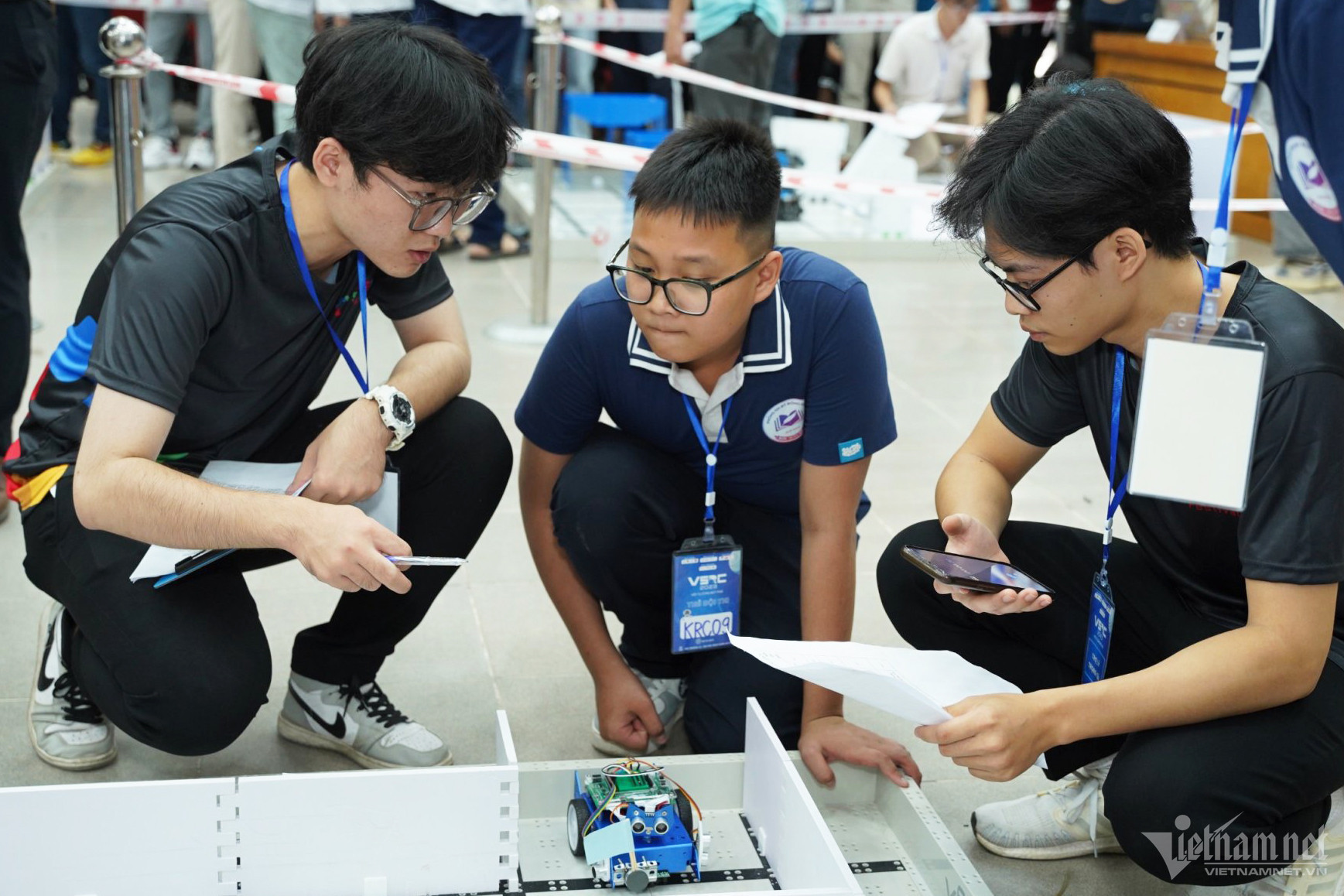
Experts all agree that Vietnam spends too little money on R&D (0.4 percent of GDP in 2023). Global integration is considered a part of doi moi (renovation), but Vietnam has not well prepared for this. Analysts note that Vietnam wants to go to the "open sea" (international integration), but has only prepared "a modest crew of sailboats and small coracles".
With small boats, Vietnam would face disadvantages in the home market, let alone the global one.
Therefore, it is necessary to take full advantage of the centralized political regime to quickly establish big vessels with national champions in advanced technology to be able to control the "home market" and join the world market.
Vietnam needs to carry out a major reshuffle in three major bases – regime and policies, financial investment, and talent use.
Breakthroughs in policies
It is necessary to restructure the network of research institutes with three major components – state-owned research institutes; research institutes under universities; and institute belonging to businesses. And specific tasks should be addressed by every type of institute, based on their strengths.
Merging public research institutes is a good idea. If so, large-scale research institutes will form with sufficient resources and capability to carry out research and develop large and valuable projects.
The most ideal solution is merging all public institutes with smaller ones, and merging 170 science and technology organizations now under the management of provincial people’s committees into two national universities and two national academies.
The other solutions include merging state-owned enterprises, and forming large-scale enterprises so as to have enough resources for R&D promotion and advanced technology application.
Minimizing the number of state-owned enterprises is a solution for resources to be used more effectively, mitigating embezzlement and wrongdoings, while increasing private enterprise development.
Vietnam also needs to support domestic technology firms to enter the world market by offering tax incentives and direct financial support, and remove procedural barriers.
Financial investment
Research institutes, universities and businesses are not spending big money on R&D, which is unwise. The problem needs to be settled immediately by increasing the budgets for R&D.
Experts have suggested a new carrot and stick approach in investment to create strong motivation and pressure to promote R&D development.
In addition, it is necessary to set strategic goals with clear KPI indicators, and build an effective evaluation system to assess investment in R&D and promptly detect and handle "high cost but low efficiency" investment projects.
The investment should focus on information technology, biotechnology, and new sciences and technologies, such as AI and data, to keep up with world trends.
Establishing an R&D Development Fund for a strong Vietnam in the 4.0 era is needed. The funds will be from the state budget, contributions from businesses, support from individuals and organizations at home and abroad; and money recovered in corruption cases and from state-owned enterprise sales.
Talent
A favorable regime and heavy investment are important factors, but the use of talent plays a decisive role determining the success and failure of R&D promotion.
With a low starting point, little accumulated knowledge, and modest experience in R&D, Vietnam needs to learn to stand on the shoulders of giants and ride on the "express trains" of developed countries. The international connections allow Vietnam to learn from excellent teachers and develop R&D.
Vietnam needs to offer favorable working conditions for R&D talent, both Vietnamese and foreign, to settle down, work and devote themselves to the development of Vietnam.
Vietnam has a large contingent of scientists living overseas and want their homeland to be a prosperous country.
Higher education needs to be developed based on three pillars – finance, mechanisms, and talent, which can convert the great potential in grammar education into a skillful labor force. Vietnam is nurturing the dream of building universities into elite universities of international stature.
So, developing R&D to catch up with developed countries is an urgent task. Vietnam "departed" later than other countries and has been going slowly. If it continues to be reluctant to go ahead, it will be left far behind.
Pham Manh Hung (Vietnam National University, Hanoi)